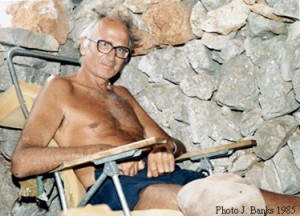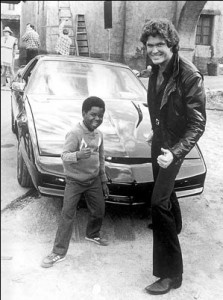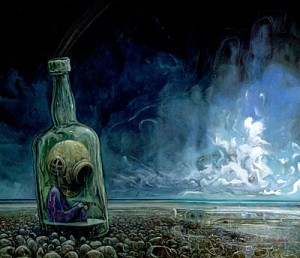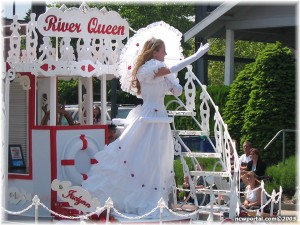Matthew Simmons
Matthew Simmons lives in Seattle.
Matthew Simmons lives in Seattle.
httpv://www.youtube.com/watch?v=bqHU9oh0hMA
 Nicholas Mosely served in Italy during World War II. His first book was published in 1951.
Nicholas Mosely served in Italy during World War II. His first book was published in 1951.
His first book is old enough to be your grandfather.
I’ve been meaning to check out Mosley for some time. He’s intimidating, though—has been writing for quite some time, has stacked up a pretty large bibliography.
God’s Hazard is a 2009 novel published by Dalkey Archive. I am tired today because I started the book before bed last night, and stayed up an hour later than usual to continue reading it.
I will try to talk about it in depth in a couple of days when I finish it. Until then, here’s a section. Screw context. READ MORE >
Twice today I’ve thought of Burgess Meredith. Second time was in reference to Time Enough at Last, a Twilight Zone episode about having more books than you can read. First time was something else. If you can guess the circumstances, I will send you a prize package.

POS: Living in everyday is something
Something everyday like this is our livin’DOVE: Giving something sheer for the crowd is our major
Major to the crowd is to hear what we’re givin’POS: No time to rest we got work in the studio
Studio suppliers rest at no timeDOVE: Showtime is enough when the Soul is performing
Performing is the Soul y’all, and it’s showtimePOS: Coping with dates in clubs, can’t even lounge,
Lounge with the homeboys how we are copin’DOVE: Scoping new material for Paul to plug high-pitched,
High-pitched what Paul plugs in and still scopin’POS: Bearer of peaceful views to express peace,
Peaceful expressions why we are bearers—This Is a Recording for Living in a Full time Era
Oh, come on now. Not even De La writes like this anymore.

A buddy of mine wrote to say that he had read somewhere that David Hasselhoff credits many of the choices he’s made in life, and much of his own ability to overcome the difficulties he’s face to his very close relationship with God. Included in the choices and overcoming is his decision to be on Knight Rider.
Some of my best friends are theists, so I’m not trying to bag on that sort of thing here. I will, however, suggest that maybe that voice talking to him and telling him to stick the TV show out for another season could’ve been KITT. Not all disembodied voices are the Lord. (“Remember when there was only one set of tire tracks? That’s when I was carrying you, Michael.”)
READ MORE >
Here’s a free idea for some tech-savvy designer: launch a website that lets people create and print out their very own fake Kenyan Birth Certificate. I totally want one for my fridge.

For a short time I worked in the Kids Books section of my bookstore, and I found a few favorites.
If you, like me, have a young relative moving through the picture books stage of their lives, I’d like to suggest you get them a copy of Shaun Tan’s book The Red Tree. I’ve never really seen a picture book like it.
The illustrations (like the one above) are quite beautiful. That’s not unique, though. The images are surreal and well-crafted. Nothing unique there. The text is simple and direct. Again, lots of books like that for young people.
What makes the book stand out is that it suggests something you rarely see a book for kids suggest. It suggests that life is hard, and sometimes very dark, and sometimes you—young reader—are going to feel bad. You are going to get depressed. You are going to have a hard time getting over some things. And this, too is not unfamiliar.
But this is what it says about being sad: it’s okay. It’s okay to feel bad.
Not tomorrow will be a better day. There is always hope. Every cloud has a silver lining. Not it’s always darkest just before the dawn.
Just, sometimes its dark. You are allowed to notice that it is dark.
You have no idea how long it took me to learn that. Years. Years and years. That someone was brave enough to put that message in a picture book makes me very happy.
So, you sit down and you write something. And you write for a while. And you get to a certain point and you think you’re done because you have finished a “story.” How do you know? (You, readers/writers.) What’s a story?
 From his new book, Marbles, published by Turtle Point Press. (Second title down.)
From his new book, Marbles, published by Turtle Point Press. (Second title down.)
There are sentences so triumphant we imagine we can make out the author in them, waving to us delightedly from a float within the paragraph.
A coworker found this book in our pile of galleys and reader’s copies. More of the pieces from the book here.
I’m curious about the aphorism as a form.
I recall working a temp job—test scoring, I think—where during the New Worker orientation, another contingent employee mentioned that she liked to write, and when asked what sorts of things she wrote, she said she enjoyed writing poetry, stories, and “quotes.” I assume she meant aphorisms, but you never can tell. Maybe she considered writing down things other people had said a kind of writing. Or maybe she thought she was very quotable. In fact, as I have just quoted her “quote” line, she is/was, in a way, kind of quotable.
Are there narrative possibilities in the aphorism, or just poetic ones?